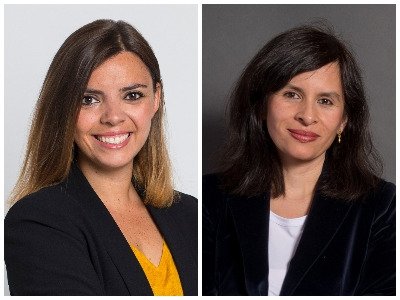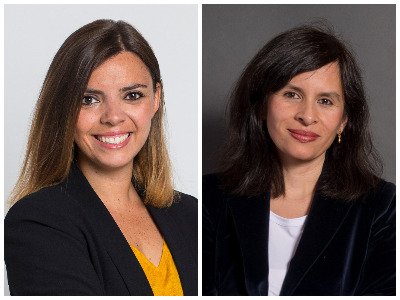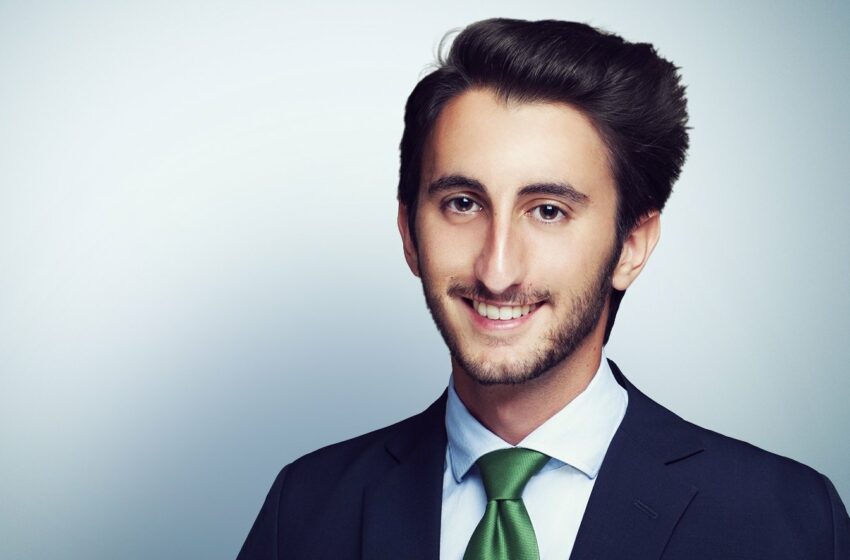SPECIAL: Paralegals, born or made?

Iberian Lawyer interviews two paralegals, with different backgrounds and professional careers to analyse with them if this role is something that can be learnt or on the contrary, it requires some natural skills.

With a degree in Law from the Universidad Complutense de Madrid, Silvia Blanco Díaz (pictured left), a paralegal in Linklaters Real Estate practice, tells us that her arrival in the profession “wasn’t so much a decision as a path that I gradually came upon as the years went by. After finishing university and living abroad, I joined the labour market in the middle of an economic crisis. I was fortunate to become part of the Mass Litigation team in Tax&Legal Services at PwC, providing support to a team of more than ten lawyers. That was the start of a journey which I am still on.”
As Silvia comments, in the nearly eight years that she has been in this role, she has worked for prestigious firms such as PwC, Cuatrecasas and now, for just over two years, Linklaters. She has also worked in different departments and areas. “Having worked in various different firms, teams and practices has meant that I have grown not only in versatility (technically speaking) but also in my ability to adapt. Specialisation is something that is highly valued in many sectors, including Law, but it does not appear to be as necessary for the responsibilities that a paralegal has. As a general rule, a paralegal gives administrative-legal support to the lawyers that are more specialised by practice area, and because of the type of work we do, we can adapt to all of them. In any event, the legal advice that paralegals give is limited and always supervised by a practising lawyer. Although it’s true that in the last three years I’ve been more focused on Real Estate, at the moment I’m also working with other departments in the firm, which makes me think that the way that Spanish law firms will be organised in the future will include rotating paralegals, as happens in firms in the English-speaking world.”
Sonia Aguirre (pictured right) is a paralegal in the IP department at Bird & Bird. With a degree in Psychology, Sonia tells us how she came to the world of Intellectual Property. “I was brought to the world of Intellectual Property by a blend of chance, compatibility with my skills and a bit of luck. I found myself about to complete a Master’s degree in Psychotherapy while I was enchanting a series of part-time jobs, most of them as a receptionist in offices that needed someone to speak English. One of these jobs took place at an Intellectual Property agency, a small but with a lot of tradition. Step by step, my responsibilities were increased, especially in the translation of transfer contracts and licenses, which was one of the areas the agency found most work at. For this business, it was extremely profitable to perform a series of in-house tasks that should be previously commissioned to external providers, and that is how a temporal job became a permanent one.”
As a veteran paralegal, with 15 years in this role, Sonia tells us that she particularly enjoys issues related to trademark application feasibility investigations. “I especially like topics related to trademark application viability researches because they make room to the search and interpretation of valuable information for the client, which is an embryonic stage of the procedure where ideas from the client can be tuned in order to make them compatible with the current laws and with the registers that already exist within the market. I also enjoy very much translation in patents topics because, even though I am not a translator, part of my job consists in reviewing, polishing, and adjusting the work from our international team of translators.” Aguirre also talks about the importance of teamwork in order to play this role successfully. “Teamwork is key; it requires the combination of a series of skills and expertise in order to deliver any kind of registration. Many times we work in sync with our offices in other countries and advise clients of different characteristics and culture. For a paralegal, it is fundamental to coordinate that all these resources do work in harmony.”
We asked both of them if they believe that this role is sufficiently valued in our country compared to how it is treated in other places. “In other countries, the role of paralegals has been established for many years, and they are used very differently to how the role is designed by Spanish firms. Even in Spain, there is a certain disparity between firms when defining the role of paralegals, and within those Spanish firms themselves, their duties and responsibilities can be very different. One notable aspect in Spain is that, in general, if you are in the role of a paralegal, it could be difficult to opt in the future to pursue a professional career as a lawyer in the same firm. Anyway, in Spain there’s still a long way to go in terms of a paralegal as a career, for it to become as important as it is now in other countries,” says Silvia. Her professional colleague agrees with her, “personally, I have felt valued, especially since I can work in many areas and that versatility has always been a plus in my different work experiences. However, it is sometimes difficult to explain what I do to people outside the field because it is not a very extended profile among Spanish firms, although I think it is increasing,” adds Sonia.
As to whether COVID-19 has contributed to the increase in the search for these profiles, Silvia argues that “it is undeniable that the health crisis has led to an economic crisis that is driving all companies to look for alternative forms of economic efficiency, but this is not the case in large law firms, where the position of practising lawyer and paralegal are very different from each other.” Sonia, for her part, says she is not very clear about it but affirms that “even if this was the case it would be a flawed strategy, this kind of job has its difficulties, and it requires acquiring a very specific set of skills and even though there is available training, most part of it comes from day-to-day practice.”
At least in Spain, this seems to be a role in which women predominate. “In Bird & Bird, we find ourselves in parity in this aspect but probably language skills and patience, which are abilities traditionally related to the work role of women,” states Sonia. “It’s true that there are more women than men in the role, based on a certain belief that we have better skills at organisation and management,” points out Silvia. “However, over my professional career, I’ve always had male colleagues performing the same duties as me,” she adds.
Talking about the qualities needed and the pros and cons of the profession, Silvia says that “in my view, you need to have a Law degree. Lately, I’ve seen job offers for paralegals where they don’t make this a requirement but, to provide support to a lawyer and have direct contact with the client, you need to have a minimum grounding in Law, as well as being well-organised, thorough, proactive, able to work in a team and to have certain communication skills.” In her case, “it’s a profession that I would recommend because I think in the future we will have an essential role in law firms.”
Also, Sonia would recommend it. “Pros: the possibility to grow in a labour market that is not saturated and demands people with experience and training. Cons: one almost always works against the clock and with strict deadlines with each project step, but if this can be integrated into the work routine, the chances of enjoying it and keeping oneself motivated are high. Yes, I would recommend it.” Talking about the necessary skills, Aguirre lists the following: “the ability to coordinate teams (many times remotely); abilities to explain and offer alternatives and solutions to the client (frequently the job consists of making easy what is complex); the ability to parallel run various projects and be updated in what comes to the procedure changes and technical developments that might ease our job.”
In terms of their career plans, both aspire to continue to grow in the professional environment in which they find themselves. “To keep on growing in Bird & Bird. Our Prosecution department is relatively young, and our portfolio of clients and registers does not stop growing, so I see myself learning new things and assisting clients with different service needs,” expresses Sonia. In this respect, Silvia also feels fortunate. “To date, I’ve had a professional career that exceeded my expectations, thanks also to the fact that if you work hard, you get the rewards. At the moment, Linklaters, as well as being a top firm, is working internally to promote the role of paralegals. My career plans in the short term are to continue getting training in the different practice areas, as well as doing what I can to give the role more visibility in the firm’s departments until paralegals become indispensable.”
By Desiré Vidal Perea
To read the interview in full please download issue N.104 here.












